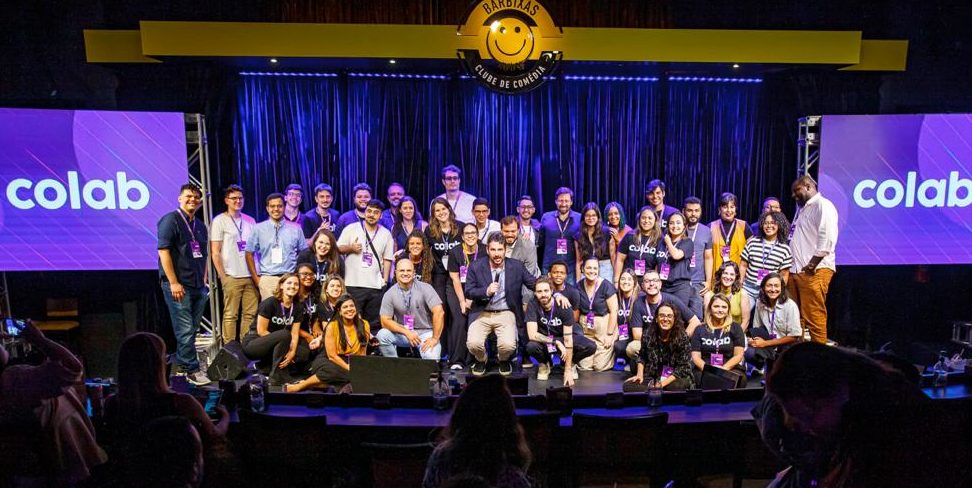São Paulo, December 5, 2023.
In the year in which it completes a decade of existence, Colab – a startup that provides solutions to streamline relations between citizens and public services – has received a new round of investment from the Gov Tech Fund, managed by KPTL and Cedro Capital.
Over the course of its 10 years, Colab has gone through several phases and improved its services. The “New Colab”, as the company likes to call it at the moment, has a system that creates, edits and manages any digital public service: from nursery school enrollment to social assistance registration.
So the company created a system builder tool that integrates with any government platform. It allows city halls, state governments and federal agencies to offer their own digitalized public services on-demand. In this way, it offers the level of depth that institutions need, such as administrative processes as attributes of the system.
For Gustavo Maia, founder and CEO of Colab, the journey so far has made the company great. “In 10 years, we have learned from thousands of public managers and in the largest and best government technology discussion forums in the world what their biggest pains are and how technology can support them. More than that, we’ve listened to millions of ordinary citizens, their needs and what they expect from a government to positively impact their lives. And then we came up with this ‘New Colab’ that we are presenting to the market,” says Maia.
Colab’s work with dozens of city halls and some state governments translates into robust figures. There are already more than 20 million people impacted in Brazil, with more than 1 million users. In addition, more than 10,000 civil servants use the platform every day. The company already has 50 employees.
The current contribution, the amount of which has not been disclosed, aims to develop and improve its services platform, allowing managers to implement their different public policies and processes in a flexible and adaptable way in their dealings with citizens and companies. In addition, part of the investment will be directed towards expanding the reach in terms of the population impacted, by strengthening the sales and after-sales channels.
Adriano Pitoli, Head of the GovTech Fund, puts the strategy into context and explains what motivated the new investment. “We met Colab 10 years ago and were the first investors. By showing us what they’ve done over the last 10 years, we believe that the company has managed to reinvent itself and is firmly on a disruptive path,” says Pitoli.
In its journey, Colab has won awards of great international importance. In 2015, it was chosen at the World Summit Awards in Abu Dhabi as one of the five best mobile solutions for government in the world. The following year, Demand Solutions, promoted by the Inter-American Development Bank (IDB), chose Colab as the “Best Social Business”. In 2017, the Unreasonable Group and the US State Department ranked Colab as one of the 16 best companies in the world at implementing the UN’s sustainable development goals. Among many other recognitions, in 2020 Tracxn described the startup as “promising and with a high chance of becoming a unicorn in the next few years”
COLAB IN PRACTICE
While Colab has established itself as a contact solution between the population and public authorities and has transformed the relationship between various city halls and citizens through urban management services and public consultations, today the new Colab is much more. It’s a management solution, a kind of “CRM” between town halls and citizens and a marketplace for digital public services, which can be replicated easily. It’s putting a tool in the government’s hands that will speed up and facilitate the creation of public policies and distribute them to citizens through a multichannel approach.
Colab’s client since 2018, the Santo André City Hall (SP) is also a reference for the potential of the startup’s services. Since then, the agency has had 45,984 active users on the platform who have made a total of 121,129 complaints, 92% of which have been resolved and 8% are ongoing. Three months ago the city renewed the contract, but with a larger scope.
The new tools allow public managers to assess the impact, including the financial impact, of reducing costs. It’s a metric that covers a much wider range of indicators, since previously the parameters only revolved around the number of potholes plugged or lighting problems solved.
For Pedro Seno, Santo André’s Secretary for Innovation and Administration, Colab has been one of the city’s great partners for five years, strengthening the relationship between government and society and simplifying access to municipal public services. “Now, in the new phase of this relationship, we see Colab as the major player in the City Hall’s digital transformation process, being the technological basis for the service areas, digitizing internal processes and offering digital public services to the population,” says Seno.
Another of the most striking examples in Colab’s trajectory is the use of the platform by the city of Niterói (RJ), which began in 2014. By September 2021, 163,000 citizens had downloaded the Colab app on their smartphones, around 30% of the municipality’s total.
During the Covid-19 pandemic, the app has made a difference in scheduling vaccinations. “It was the most practical way to avoid crowds and speed up the immunization process. It’s essential to use technology and its infrastructure to serve the population, especially at a time when we needed to vaccinate as many people as possible safely,” said Axel Grael, mayor of Niterói. In addition to city halls and municipalities, Colab also serves governments such as those of Piauí and Rio Grande do Sul. For example, these two states use public consultation solutions applied to participatory budgeting to allocate resources. The entire process is carried out using blockchain technology to register and validate CPFs with the Receita Federal, thus ensuring greater security for each vote.

